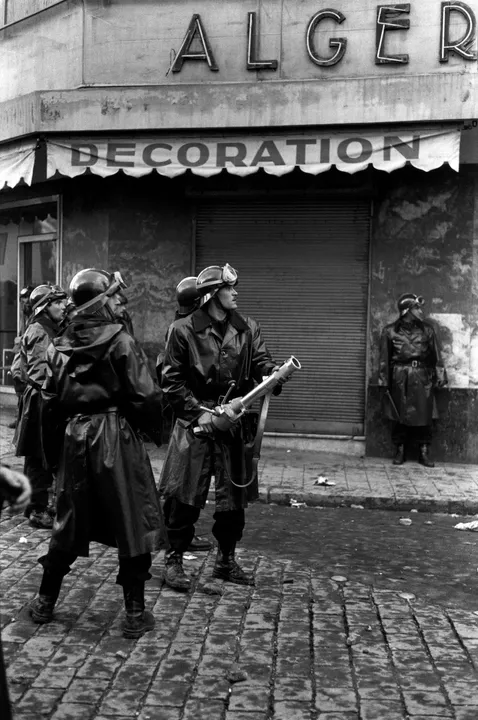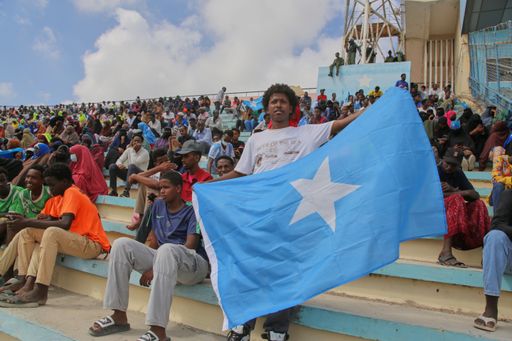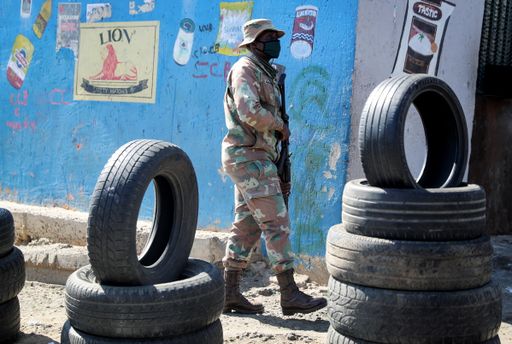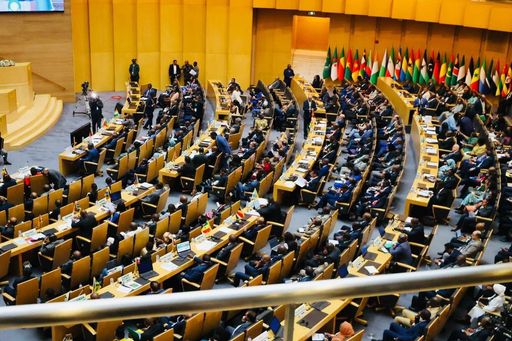Sport
The French state seems not to fathom the presence of certain foreign cultures, which highlights what is tantamount to hypocrisy, as it uses its secularism to justify what is really racism.
By Yahya Habil
The 8th of May 2025 marked the 80th anniversary of the beginning of the massacres perpetrated by France in Algeria in 1945.
The massacres by the French colonial authorities and the French settler (pied-noir) militias in Algeria’s Setif, Guelma, and Kheratta, started as a ‘’retaliation’’ for the killing of 102 French settlers during riots by Algerians.
The unrest was sparked by the killing of street demonstrators by French security forces in the city of Setif.
The number of unarmed Algerians killed in the massacres ranges from 3,000, to 30,000, according to estimates given by historians. This highlighted the high level of brutality of French colonialism.
In light of the policies of the current French government led by Emmanuel Macron, this begs the question of whether France has heeded the lessons from its past atrocities.
Today’s France prides itself as a liberal, democratic, and secular state. The French state particularly takes pride in its so-called “laïcité” (secularism).

Despite its secular nature, France has been struggling with multiculturalism for a while now.
France’s dilemma of multi-culturalism
This is because multiculturalism, as its name suggests, brings along multiple cultural values, which might be incompatible with each other or with the majority.
The French state considers the religious and cultural values of the country’s non-European residents as a headache to its acclaimed secular and liberal values.
For instance, North African immigrants who reside in France adhere to their own cultural and Islamic values with their own manifestations. These manifestations, such as the hijab, are regarded as incompatible with French culture, and have therefore been targeted for prohibition by the authorities.
However, if France was truly secular as it claims to be, this shouldn’t pose a problem, as true secularism aims to not only separate religion from the state, but also separate the state from religious life and should also aim to protect religious life and its various manifestations.
However, the French state seems not to fathom the presence of certain foreign cultures, which highlights what is tantamount to hypocrisy, as it uses its secularism to justify what is really racism.
How does this fit into the massacres of Algerians?
Undoubtedly, racism fuelled the massacres. In fact, the whole French colonial project in Algeria and elsewhere was pillared by racism. This is backed by Frantz Fannon, a French political philosopher, who claimed: “In reality, a colonial country is a racist country”.
After all, the pied-noir militias which played a major role in these massacres were there to settle on Algerian land on the basis that they were more “deserving” of the land.
As a matter of fact, the multiculturalism which France struggles with today is a by-product of its past colonial endeavours. Thus, with its refusal to deal with multiculturalism wisely, is it fair to say that France has not heeded the lessons from its past?
After all, displaying the skulls of the Algerian victims from the various colonial massacres at a French museum not only indicates that France has not necessarily heeded the lessons from its colonial past, but rather indicates that it takes pride in it.
Algeria demanded the repatriation of these skulls from France on multiple occasions. Although some were returned (24 pieces in 2020), a lot remain for public display in the French National Museum of Natural History in Paris.
Moreover, even among the 24 pieces repatriated, only six were traced to the Algerian victims through DNA tests.

This has ignited diplomatic tensions in the already tumultuous relationship between France and Algeria, which has deteriorated in recent months due to the arrest of an Algerian consular official in France.
The diplomatic turbulence may indicate that France has not really sought to improve its relations with its former colony.
This applies to its other former colonies as well, particularly in sub-Saharan Africa.
This comes France strives to maintain relationship with these countries with its typical features of subservience, dependency, and exploitation.
For instance, although France has recently lost its foothold in several countries in the Sahel states, for example Burkina Faso, Niger, Mali, Chad, it still maintains various military bases in other parts of the continent to ensure military and political influence.
Furthermore, it also exerts economic influence over many sub-Saharan states through the CFA Franc.
A colonial and neo-colonial currency used in fourteen African countries, the CFA franc, which is pegged to the euro, is a tool through which France ensures that countries using the currency will place a percentage of their foreign exchange reserves in a designated French treasury account.

This enables the French government to oversee and influence the treasuries of fourteen African nations.
Such policies and approaches demonstrate that, although no longer a colonial empire, France remains a neo-colonial and neo-imperialist state trying to maintain its foothold in Africa.
In other words, despite the fact that its colonial era is long gone, France has yet to heed the lessons from this stained past, as the same ideologies which defined France’s colonial atrocities, are the ones that drive the policies and approaches of today’s French state.
As for the 8th of May massacres of Algeria, it is worth mentioning that the Setif demonstrations which ignited the massacres were initially in celebration of Victory Day in Europe, which was ironically on the 8th of May, and the day the allies triumphed in WW II in the name of liberty.
Therefore, considering what unfolded later on, what freedom and triumph over oppression mean for France remain baffling. But its hypocrisy and selective freedom are evident.
The author, Yahya Habil, is a Libyan freelance journalist focusing on African affairs.
Disclaimer: The views expressed by the author do not necessarily reflect the opinions, viewpoints and editorial policies of TRT Afrika.
Comments
No comments Yet




















Comment